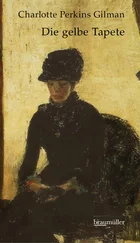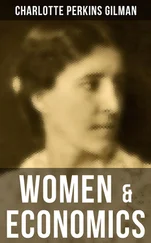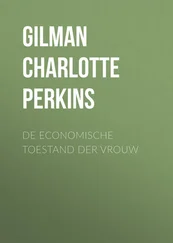Charlotte Gilman - Concerning Children
Здесь есть возможность читать онлайн «Charlotte Gilman - Concerning Children» — ознакомительный отрывок электронной книги совершенно бесплатно, а после прочтения отрывка купить полную версию. В некоторых случаях можно слушать аудио, скачать через торрент в формате fb2 и присутствует краткое содержание. Жанр: foreign_prose, на английском языке. Описание произведения, (предисловие) а так же отзывы посетителей доступны на портале библиотеки ЛибКат.
- Название:Concerning Children
- Автор:
- Жанр:
- Год:неизвестен
- ISBN:нет данных
- Рейтинг книги:5 / 5. Голосов: 1
-
Избранное:Добавить в избранное
- Отзывы:
-
Ваша оценка:
- 100
- 1
- 2
- 3
- 4
- 5
Concerning Children: краткое содержание, описание и аннотация
Предлагаем к чтению аннотацию, описание, краткое содержание или предисловие (зависит от того, что написал сам автор книги «Concerning Children»). Если вы не нашли необходимую информацию о книге — напишите в комментариях, мы постараемся отыскать её.
Concerning Children — читать онлайн ознакомительный отрывок
Ниже представлен текст книги, разбитый по страницам. Система сохранения места последней прочитанной страницы, позволяет с удобством читать онлайн бесплатно книгу «Concerning Children», без необходимости каждый раз заново искать на чём Вы остановились. Поставьте закладку, и сможете в любой момент перейти на страницу, на которой закончили чтение.
Интервал:
Закладка:
That fresh, unwarped sense of human honour, the race-enthusiasm of the young; and the fund of strength they bear with them; together with the very light expenses of this period, all the heavy drains of life being met by the parent, – these conditions make that short ten years the most important decade of a lifetime.
It is no wonder that we worship youth. On it depends more than on the most care-burdened age. It is one of the many follies of our blundering progression that we have for so long supposed that the value of this period lay merely in its enjoyableness. With fresh sensations and new strength, with care, labour, and pain largely kept away, youth naturally enjoys more heartily than age, and has less to suffer; but these are only incidental conditions. Every period has its advantage and accompanying responsibilities. This blessed time of youth is not ours to riot through in cheerful disregard of human duty. The biological advantage of a longer period of immaturity is in its cumulative value to the race, the older parent having more development to transmit.
The human animal becomes adult comparatively early, – that is, becomes capable of reproducing the species; and in states of low social grade he promptly sets about it.
But the human being is not only an individual animal: he is a social constituent. He may be early ready to replace himself by another man as good, but he is not yet able to improve upon the past and give the world a man much better. He is not yet developed as a member of society, – trained in those special lines which make him not only a healthier, stronger, rounder individual, but a more highly efficient member of society. Our people to-day are not only larger and longer-lived than earlier races, but they are capable of social relations immeasurably higher than those open to a never-so-healthy savage.
The savage as an individual animal may be equal – in some ways superior – to the modern man; but, as a social constituent, he is like a grain of sand in a heap compared to some exquisitely fitted part of an intricate machine, – a living machine, an organism. In this social relation man may grow and develope all his life; and that is why civilisation, socialisation, brings us useful and honourable age, while savagery knocks its old folk on the head.
But while the social structure grows in beauty, refinement, and power, and eighty years may be spent in its glorious service, that service must be given by individuals. Unless these individuals improve from age to age, showing a finer, subtler, stronger brain and unimpaired physique, there can be no genuine or enduring social improvement. We have seen repeatedly in history a social status lodged in comparatively few individuals, a narrow fragile upper-class civilisation; and we have seen it always fall, – fall to the level of its main constituents, the mass of the people.
One per cent. of sane men in a society of lunatics would make but a foolish state; one per cent. of good men in a society of criminals would make a low grade of virtue; one per cent. of rich men in a society of poor peasants does not make a rich community. A society is composed of the people who compose it, strange to say, – all of them; and, as they are, it is. The people must be steadily made better if the world is to move. The way to make people better is to have them born better. The way to have them born better is to make all possible improvement in the individual before parentage. That is why youth is holy and august: it is the fountain of human progress. Not only that "the child is father to the man," but the child is father to the state – and mother.
The first fifteen years of a child's life should be treated with a view to developing the power of "judgment" and "will," that he may be able to spend his precious ten in making the best possible growth. A boy of fifteen is quite old enough to understand the main principles of right living, and to follow them. A girl of fifteen is quite old enough to see the splendid possibilities that lie before her, both in her individual service to society and the almost limitless power of motherhood. It is not youth which makes our boys and girls so foolish in their behaviour. It is the kind of training we give the little child, keeping back the most valuable faculties of the brain instead of helping them to grow. A boy cast out upon the street to work soon manifests both the abilities and vices of an older person. A girl reared in a frivolous and artificial society becomes a practising coquette while yet a child. These conditions are bad, and we do not wish to parallel them by producing a morbidly self-conscious and prematurely aged set of youngsters. But, if the child has been trained in reason and self-control, – not forced, but allowed to grow in the natural use of these qualities, – he will be used to exercising them when he reaches the freer period of youth, and not find it so difficult to be wise. It is natural for a child to reason, and the power grows with encouragement and use. It is natural for a child to delight in the exercise of his own will upon himself in learning to "do things."
The facility and pleasure and strong self-control shown by a child in playing some arbitrary game prove that it is quite natural for him to govern his acts to a desired end, and enjoy it.
To a desired end, however. We have not yet succeeded in enlisting the child's desires to help his efforts. We rather convince him that being good is tedious and unprofitable, often poignantly disagreeable; and, when he passes childhood, he is hampered with this unfortunate misbelief of our instilling.
But, with a healthy brain and will, a youth of fifteen, with the knowledge easily available at that age, should be not only able and willing, but gloriously eager for personal development. It is an age of soaring ambition; and that ambition, directed in lines of real improvement, is one of Nature's loveliest and strongest forces to lift mankind.
There is a splendid wealth of aspiration in youth, a pure and haughty desire for the very highest, which ought to be playing into the current of our racial life and lifting it higher and higher with each new generation.
The love of emulation, too, so hurtful in the cheap, false forms it so often takes, is a beautiful force when turned to self-improvement. We underrate the power of good intention of our young people. We check and irritate them all through childhood, confusing and depressing the upward tendencies; and then wag our aged heads pityingly over "the follies of youth."
There is wisdom in youth, and power, if we would but let it grow. A simple unconscious childhood, shooting upward fast and strong along lines of rational improving growth, would give to the opening consciousness of youth a healthy background of orderly achievement, and a glorious foreground, – the limitless front of human progress. Such young people, easily appreciating what could be done for themselves and the world by right living, would pour their rich enthusiasm and unstrained powers into real human growing, – the growing that can be done so well in that short, wonderful ten years, – that must be done then, if the race is to be born better. Three or four generations of such growth would do more for man's improvement than our present methods of humaniculture accomplish in as many centuries.
II
THE EFFECT OF MINDING ON THE MIND
Obedience, we are told, is a virtue. This seems simple and conclusive, but on examination further questions rise.
What is "a virtue"?
What is "obedience"?
And, if a virtue, is it always and equally so?
"There is a time when patience ceases to be a virtue." Perhaps obedience has its limits, too.
A virtue is a specific quality of anything, as the virtue of mustard is in its biting quality; of glass, transparency; of a sword, its edge and temper. In moral application a virtue is a quality in mankind whereby we are most advantaged. We make a distinction in our specific qualities, claiming some to be good and some bad; and the virtues are those whereby we gain the highest good. These virtues of humanity change in relative value with time, place, and circumstance. What is considered a virtue in primitive life becomes foolishness or even vice in later civilisation; yet each age and place can show clear reason for its virtues, trace their introduction, rise into high honour, and gradual neglect.
Читать дальшеИнтервал:
Закладка:
Похожие книги на «Concerning Children»
Представляем Вашему вниманию похожие книги на «Concerning Children» списком для выбора. Мы отобрали схожую по названию и смыслу литературу в надежде предоставить читателям больше вариантов отыскать новые, интересные, ещё непрочитанные произведения.
Обсуждение, отзывы о книге «Concerning Children» и просто собственные мнения читателей. Оставьте ваши комментарии, напишите, что Вы думаете о произведении, его смысле или главных героях. Укажите что конкретно понравилось, а что нет, и почему Вы так считаете.












